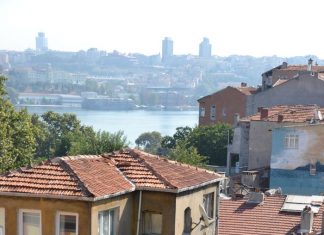Poland
Introduction
Polish literature begins a thousand years ago, but until towards the middle of the last century there is very little prose fiction, and probably no single short story of outstanding merit.
The history of Po- v land is so strikingly dramatic and her political vicissitudes so many and so varied that it is scarcely to be wondered at that the Poles failed to develop narrative fiction. One of the greatest Polish writers was Adam Mickiewicz (1798-1843), and though he wrote very little fiction he was largely instrumental in establishing a literary tradition.
With the novels of Mme. Orgaszo and Sienkiewicz Polish literature entered a new and very productive age. During the past two generations the short story has been assiduously developed by a dozen writers of exceptional talent. Prus and Szymanski, Orzeszkowa, Sienkiewicz and Zeromski have utilized the form for the expression of their deepest convictions. Among the later writers who have written short stories are Reymont, Kaden-Bandrowski, and Mme. Rygier-Nalkowska.
Henryk Sienkiewicz (1846—1916)
Sienkiewicz was born at Wola Okrzejska in Lithuania. He studied at the University of Warsaw, and began writing at a comparatively early age. When he was thirty he went to the United States. In 1884 he published his first successful novel, With Fire And Sword.
Quo Vadis came some years later. He was one of the most gifted of the Polish writers of stories, and The Lighthouse Keeper of Aspinwall is the best of his short tales.
The present version is reprinted from the volume Yanko the Musician, etc., translated by Jeremiah Curtin. Copyright, 1893, by Little, Brown & Co., of Boston, by whose permission it is used here.
The Lighthouse Keeper of Aspinwall
On a time it happened that the lighthouse keeper in Aspinwall, not far from Panama, disappeared without a trace. Since he disappeared during a storm, it was supposed that the ill-fated man went to the very edge of the small, rocky island on which the lighthouse stood, and was swept out by a wave.
This supposition seemed the more likely, as his boat was not found next day in its rocky niche. The place of lighthouse keeper had become vacant. It was necessary to fill this place at the earliest moment possible, since the lighthouse had no small significance for the local movement as well as for vessels going from New York to Panama.
Mosquito Bay abounds in Sandbars and banks. Among these, navigation, even in the daytime, is difficult; but at night, especially with the fogs which are so frequent on those waters warmed by the sun of the tropics, it is nearly impossible. The only guide at that time for the numerous vessels is the lighthouse.
Read More about Private Tour Bulgaria








